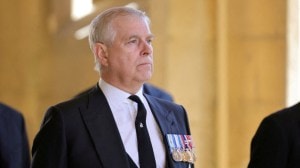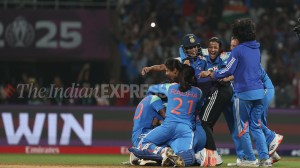Protest,Bhangra and Electronica
Bobby Friction was part of the Asian underground music scene,which was born in the UK in the 1990s. The DJ and radio presenter on how racism shaped their music.
Bobby Friction was part of the Asian underground music scene,which was born in the UK in the 1990s. The DJ and radio presenter on how racism shaped their music.
Growing up in London in the 70s and 80s wasnt easy for Paramdeep Singh Sehdev. Born to Punjabi Sikh parents,he would often be called Paki by neighbourhood children; others made fun of the music he listened to (Bollywood) and the food he ate (paranthas). The experience of racism was common to many South Asians living in Britain at the time. But in Paramdeeps case,it turned him into DJ Bobby Friction. Without the racism,the underground music scene would not have erupted. We would all have been part of rock bands because there would have been no statement to make, he says over the phone from London.
Friction was one of the earliest musicians,who with percussionist Talvin Singh,composer Nitin Sawhney and electronica outfit Asian Dub Foundation,defined the sound of the Asian underground. The 90s were very different. The time was right to do something very Indian and yet very British. It was time to prove that even though we were curry-eating,Bollywood-watching desis,we were futuristic. And what better way than music? he says.
With several members of his family in India,Friction visits the country quite often. Today,he would be at Greater Noida,playing a set at the Delhi leg of NH7 Weekender not bhangra or fusion but dubstep mixed the Friction way.
It was the early 1990s when he attended the first-ever Asian fusion night where Talvin Singh was performing. Till then,he says,he had found deejaying cheesy. But I realised DJs dont just play bhangra,it was a mad electronica set. That night changed my life and music became a protest,a statement and a radical movement, says Friction. Soon,he began playing at Anokha,the iconic East London club opened by Singh.
Within a year,groups of people were queuing up to sway to his fusion beats. The Indian nights at the club were no longer full of Indians,the Brits were part of it too. There were journalists coming in from New York,just to know what we were doing, says Friction. He had barely managed all the fame around him when he began performing at Shaanti,a club in Birmingham. This was the time Punjabi MC was creating an audience for himself and it was the rise of the electronica bhangra. Close to 2,000 people would attend those nights. We had gone from being niche to populist and it felt pretty darn good, he says.
By 2002,the movement was in full swing,with fusion gaining darling status at British clubs. BBC sensed the pulse and realised it was time to introduce the sound to their radio channel,Radio 1. The first Asian fusion music show on BBC radio was called Bobby Friction & Nihal Presents. It was an important socio-political move,since it was the first time the Asian community got a chance to represent itself through music. It was two hours a week and the time slot was 3am. Can you believe it? says Friction with a laugh.
The following year,the show won the prestigious Sony Gold Award in the Best
Specialist Music Programme category and Friction moved up to the 9pm slot. Had this happened in the 70s or the 80s,there would have been outrage: an Indian-origin guy spinning fusion tracks on primetime. There were thousands of listeners but there were also people who would say Take your music back to where you have come from, he says. He went on to host several shows for BBC,where he would promote breakthrough electronica artists from Brixton to Bombay.



- 01
- 02
- 03
- 04
- 05




























